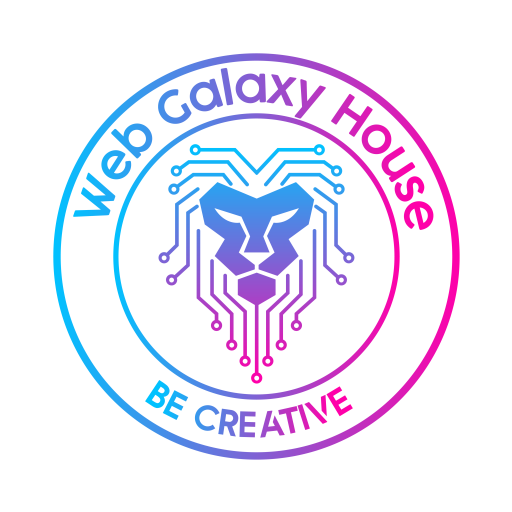Why social media marketing is important!
Introduction to Social Media Marketing
In the digital age, social media marketing has become an essential tool for businesses of all sizes. With billions of active users on platforms like Facebook, Instagram, Twitter, and TikTok, social media has become an essential part of everyday life. Beyond personal connections, social media marketing is dramatically reshaping the business world. For brands aiming to thrive in today’s digital age, mastering this powerful tool is no longer optional—it’s essential for growth.
Many businesses are realizing that a strong social media presence isn’t just an option; it’s a necessity. It offers unique opportunities for outreach and engagement that traditional marketing simply can’t match. Whether you’re a small startup or an established enterprise, leveraging social media can propel your brand forward.
So why is social media marketing so important? Let’s explore its impact on businesses and discover effective strategies for success in this ever-evolving digital realm.

The Impact of Social Media on Businesses
Let’s explore its impact on businesses and discover effective strategies for succeeding in the ever-evolving digital landscape.. Brands can now communicate directly, fostering relationships that were once difficult to establish.
With billions of users worldwide, social platforms offer a vast potential market. Companies can showcase products and services instantly, reaching diverse demographics effortlessly.
Moreover, feedback is immediate. Customers voice opinions in real-time, allowing brands to adjust strategies quickly based on consumer preferences.
The viral nature of the content means that a single post can exponentially increase visibility overnight. This organic reach reduces reliance on traditional advertising methods.
Additionally, social media cultivates community around brands. Engaging content encourages user-generated posts and discussions which enhance brand loyalty and trust among customers.
In this digital landscape, understanding the impact of social media isn’t just optional; it’s essential for success.
Creating a successful social media strategy starts with clear goals. Know what you want to achieve—whether it’s brand awareness, lead generation, or customer engagement.
Next, identify your target audience. Understand their preferences and behavior on different platforms. The viral nature of social media means that one post can skyrocket visibility, providing organic reach that traditional advertising struggles to achieve
A successful social media strategy starts with setting clear goals—whether your aim is to build brand awareness, generate leads, or increase customer engagement. Use visuals, videos, and storytelling to capture attention.
Consistency also matters. Develop a posting schedule that keeps your brand visible without overwhelming followers. Regular interactions help build relationships over time.
Don’t forget analytics! Track performance metrics like engagement rates and click-throughs to evaluate what’s working or needs adjustment.
Be adaptable. The social media landscape evolves rapidly; flexibility allows you to stay relevant and meet changing demands effectively.

The Future of Social Media Marketing
The future of social media marketing is poised for exciting transformations. As technology evolves, platforms will continue to integrate advanced features that enhance user experience and engagement.
These technologies allow brands to analyze consumer behavior more accurately, enabling personalized marketing strategies.
Video content dominance is on the rise. Short-form videos capture attention swiftly, making them essential for effective storytelling in campaigns.
Additionally, virtual reality (VR) and augmented reality (AR) could redefine how consumers interact with brands online. Imagine trying products virtually before purchasing!
Social commerce will also gain momentum, blurring the lines between social media browsing and shopping experiences.
Staying ahead means embracing innovation while maintaining authenticity in brand messaging. The ability to connect genuinely with audiences will remain key amidst evolving tactics.
Utilizing Different Platforms for Maximum Reach
Each platform attracts a unique audience, so understanding their demographics helps tailor your approach.
Facebook remains a powerhouse for businesses aiming to connect with diverse age groups. Its advertising tools can help target specific segments effectively.
Instagram shines in visual storytelling. Brands that leverage eye-catching images and videos often see higher engagement rates. Stories and reels are perfect for showcasing products creatively.
LinkedIn serves as an excellent hub for B2B marketing, connecting professionals across industries. Sharing industry insights or company updates here fosters networking opportunities.
TikTok has rapidly gained popularity among younger audiences, offering brands a chance to go viral through innovative short-form content.
By strategically utilizing these different platforms, you can craft messages that resonate perfectly with each audience while expanding your brand’s visibility across the digital landscape.

Measuring Success in Social Media Marketing
Measuring success in social media marketing goes beyond likes and shares. It’s about understanding how these interactions translate into real business outcomes.
Start by defining clear goals. Each goal requires different metrics to gauge effectiveness.
Use analytics tools to track performance. These numbers provide insight into what resonates with your audience.
ROI is crucial for demonstrating value. Calculate it by comparing revenue generated from social media efforts against the costs incurred in running those campaigns.
Don’t forget qualitative data too—customer feedback can reveal sentiment that numbers alone can’t capture.
Testing different strategies keeps your approach fresh and effective; A/B testing content types or posting times can yield valuable insights about what works best for your audience.
Potential Challenges and How to Overcome Them
Social media marketing isn’t without its hurdles. One common challenge is keeping up with the constantly changing algorithms of social platforms. These changes can drastically affect your content’s visibility.
To counter this, stay informed about updates and be flexible in your strategies. Test new approaches regularly to find what resonates best with your audience.
Another issue businesses face is negative feedback or comments on posts. Instead of ignoring criticism, engage constructively. Respond promptly and professionally; it shows that you value customer opinions.
Measuring ROI can be tricky when dealing with intangible metrics like brand awareness or engagement rates. Implement analytics tools to track performance effectively and adjust campaigns based on data-driven insights.
By anticipating these challenges, brands can navigate the social media landscape more adeptly and continue to thrive amidst competition.
Once a simple platform for personal interactions, social media now serves as a powerful tool for brands to engage and inspire.
Every day, billions of people log in to platforms like Facebook, Instagram, Twitter, and LinkedIn. They share content, seek recommendations, and form communities around shared interests.
This digital landscape allows companies to reach potential customers where they already are—online. Social media marketing offers an opportunity not just for promotion but also for genuine dialogue.
Brands can humanize themselves through storytelling and build loyalty by responding directly to customer inquiries or feedback. It’s about creating relationships rather than merely pushing products.
As technology evolves, so does the importance of mastering this dynamic aspect of modern marketing strategy. Understanding its nuances is crucial for any business looking to thrive in today’s connected world.
The evolution of social media and impact on businesses
Social media has transformed dramatically since its inception. From simple platforms for connecting friends to complex ecosystems for brands, it now plays a pivotal role in business strategies.
Initially, businesses viewed social media as an optional marketing channel. Today, it’s essential. Companies leverage these platforms not just for promotion but also for customer engagement and brand loyalty.
The rise of user-generated content shifted the focus from traditional advertising to authentic interactions. Customers want real conversations with brands they trust.
Additionally, analytics have become crucial. Businesses can track consumer behavior in real-time, allowing them to adapt strategies on the fly and meet audience needs more effectively.
The speed at which information spreads is unprecedented. A single viral post can elevate a small brand overnight or tarnish a well-established company’s reputation instantaneously. This immediacy demands that businesses remain agile and responsive in their marketing efforts.
Advantages of social media marketing: reaching a wider audience, cost-effective, real-time feedback
Social media marketing is a game-changer for businesses of all sizes. By leveraging platforms like Facebook, Instagram, and Twitter, brands can effortlessly connect with millions of potential customers worldwide. This vast reach opens doors to new markets and demographics that traditional advertising often misses.
Cost-effectiveness is another significant advantage. Many social media tools are either free or low-cost compared to conventional marketing channels. This allows companies to allocate their budgets more efficiently while still achieving impressive results.
Moreover, social media provides real-time feedback from audiences. Brands can quickly gauge reactions to campaigns or product launches through likes, shares, comments, and direct messages. This immediate insight helps refine strategies on the fly, ensuring that businesses stay relevant and responsive in an ever-evolving landscape.

Case studies of successful social media campaigns
Tips for effective social media marketing: consistency, engaging content, utilizing influencers
Consistency is key in social media marketing. Create a content calendar to plan ahead, ensuring you maintain a steady flow of posts across platforms.
Engaging content captivates your followers’ attention. Use eye-catching visuals, compelling stories, and interactive elements like polls or quizzes. Tailor your messaging to resonate with your target audience—this personal touch fosters connection.
Utilizing influencers can amplify your reach significantly. Collaborating with the right influencer introduces your brand to their dedicated followers. Choose individuals whose values align with yours for authentic promotion that feels genuine rather than forced.
Don’t forget to monitor trends within social media spaces as they evolve rapidly. Adapting quickly ensures you remain relevant while keeping engagement levels high across all channels.
Potential challenges and how to overcome them
Social media marketing is not without its hurdles. One significant challenge businesses face is staying relevant in a rapidly changing landscape. Trends can shift overnight, leaving brands scrambling to catch up.
Inconsistent messaging can also confuse your audience. To combat this, develop a clear brand voice and guidelines that ensure uniformity across all platforms.
Another issue stems from negative feedback or public scrutiny. It’s essential to engage with criticism constructively and address concerns openly. This builds trust and shows you’re dedicated to improving.
Measuring ROI can be tricky due to the intangible nature of social interactions. Implement analytics tools that track engagement metrics and conversions for clearer insights into performance.
By addressing these challenges proactively, you’ll create a more robust social media presence that resonates with your audience effectively.
Conclusion: the importance of incorporating social media into your marketing strategy
The way consumers interact with brands has shifted dramatically, and businesses that fail to embrace this change risk falling behind. By leveraging the vast reach and engagement potential of social media platforms, companies can connect with their audience on a more personal level.
The benefits are clear: increased brand visibility, cost-effective advertising options, and instant feedback from customers. Successful campaigns demonstrate how creativity and strategic planning can lead to impressive results. Brands that consistently deliver engaging content not only attract new followers but also foster loyalty among existing customers.
As you navigate the challenges of social media marketing—whether it’s managing negative comments or keeping up with algorithm changes—having a solid strategy in place will help you overcome these hurdles. Measuring success through analytics allows for continuous improvement and better ROI tracking.
Incorporating social media into your marketing strategy isn’t just important; it’s vital for staying relevant in today’s fast-paced digital world. Embracing this dynamic landscape opens doors to endless possibilities for growth, connection, and innovation in your business endeavors.
Conclusion
Social media marketing is no longer an optional strategy; it’s essential for growth. Businesses that embrace these platforms can connect with audiences in unprecedented ways.
As trends evolve, staying adaptable becomes vital. Embracing new tools and techniques will keep your brand relevant and engaging.
Building relationships through social media fosters loyalty and trust among consumers. This connection often translates into brand advocacy, which can amplify reach organically.
Remember, the landscape of social media is ever-changing. Regularly assessing performance helps identify what resonates most with your audience.
By focusing on creativity and authenticity, brands can stand out amidst the noise online. Prioritizing genuine interactions over mere promotions leads to lasting impact.
Leveraging social media effectively opens doors to opportunities that were previously unimaginable.
© Copyright By Web Galaxy House

